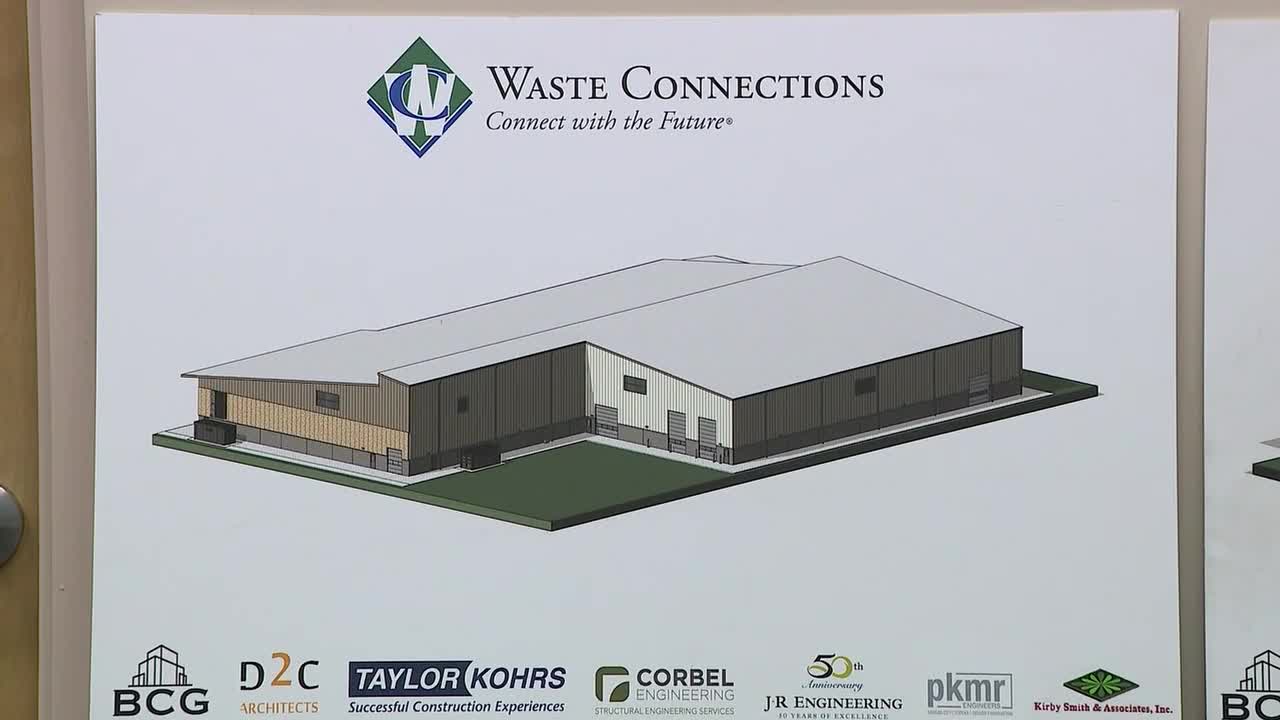COMMERCE CITY, Colo. — The saying goes, "It’s a dirty job, but someone’s gotta do it." In this case, that someone is artificial intelligence (AI).
A pile of dirt in Commerce City is set to become a next-generation recycling facility, also called a material recovery facility (MRF), by the end of next year. Waste Connections of Colorado is opening the site, which will take advantage of the latest technology.
“The sorting is going to be completely done by artificial intelligence, so robots and optical sorters, so there won't be any human beings necessarily sorting the recycling that comes into the facility and is processed out,” said Barrett Jensen, government affairs manager with Waste Connections of Colorado. "We think that it's going to be essentially a blueprint across the country for how we operate our recycling facilities."
Waste Connections will own the site, but the Louisville-based company AMP will run it. CEO Tim Stuart told Denver7 the facility will handle roughly 60,000 tons of recyclables every year.
“Think of a camera system, and the AI can recognize that material,” Stuart explained. “So it can recognize a Pepsi can going through the system. It can recognize that. Then we use jets, air jets, to push that as it's working its way into the appropriate line or bin to get that recycled… Basic camera technology and recognition, and we can get down to the granular level. And you know, you put a couple thousand tons to the system, I can tell you how many Starbucks cups that went through the line that we were able to capture.”
- AMP provided the video below to illustrate its technology:
Stuart clarified that there will still be about 15 people working in the facility, but that is about “five times” fewer than a traditional site not using AI. Those employees will be focused on maintaining the equipment and “general operations.”
He said the AI technology is better suited for the job of sorting the recycled goods.
“This is a very difficult job,” Stuart said. “So the environment is usually not an air-conditioned facility or a heated facility, and you're pulling and touching material off of the line.”
Stuart and Jensen both mentioned safety as a factor.
“A traditional facility would have many, many people in there, sorting material by hand, getting out the trash, separating the recycling,” Jensen said. “This won't have any people doing that, which is really advantageous, especially from a safety standpoint, to get people off those lines, not getting poked by needles, things that people either intentionally or unintentionally put in their recycling bins on a daily basis.”
Stuart said it’s also cheaper and more efficient to use AI technology.
“If you go to the traditional, the old way, 60, 70% of that is actually getting pulled out and recycled,” he told Denver7. “This facility, we're going to do about 90% efficiency of pulling out the right material.”
Jensen said the technology better identifies contaminated items moving through the facility, leading to “cleaner” products on the way to their end market.
Jensen estimates Waste Connections’ initial investment into the facility at around $50 million, but said the safety and efficiency justify the price tag.
“These investments are extremely worthwhile to make sure that what people are, and even myself, are recycling at the curb, are actually making it to the markets that they're supposed to,” he said.
AMP operates facilities in other states but calls the Commerce City location “the biggest one that we've embarked upon.” Jensen said the facility will be larger than 70,000 square feet and come with beautification that includes planting 500 trees and shrubs throughout the property.
Stuart said AMP is currently looking into using the technology at traditional garbage sites, also known as municipal solid waste (MSW) sites.
“We're taking this AI and this technology and going to process MSW that would have gone straight to the landfill,” he explained. “And we think we can pull out 40 to 50% of that material with recycling. That is, unfortunately, people throw away a lot of bottles and cans and plastic, and a lot of organic food waste that we can pull out of there.”






